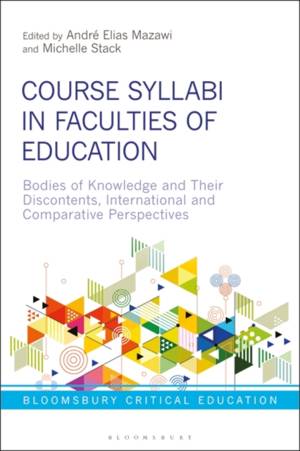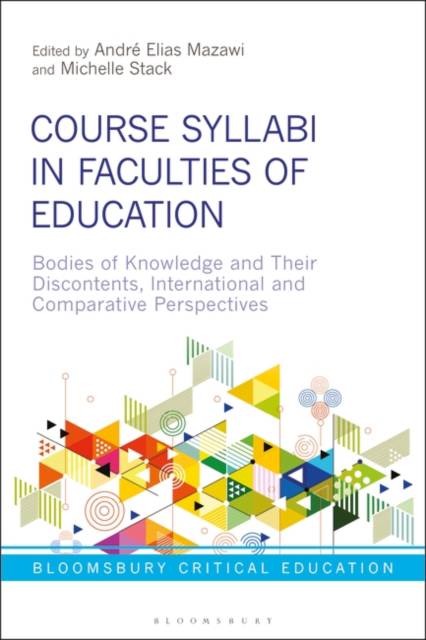
Je cadeautjes zeker op tijd in huis hebben voor de feestdagen? Kom langs in onze winkels en vind het perfecte geschenk!
- Afhalen na 1 uur in een winkel met voorraad
- Gratis thuislevering in België vanaf € 30
- Ruim aanbod met 7 miljoen producten
Je cadeautjes zeker op tijd in huis hebben voor de feestdagen? Kom langs in onze winkels en vind het perfecte geschenk!
- Afhalen na 1 uur in een winkel met voorraad
- Gratis thuislevering in België vanaf € 30
- Ruim aanbod met 7 miljoen producten
Zoeken
Course Syllabi in Faculties of Education
Bodies of Knowledge and their Discontents, International and Comparative Perspectives
€ 254,45
+ 508 punten
Omschrijving
Course Syllabi in Faculties of Educationproblematizes one of the least researched phenomena in teacher education, the design of course syllabi, using critical and decolonial approaches. This book looks at the struggles that scholars, policy makers, and educators from a diverse range of countries including Australia, Canada, India, Iran, Palestine, Qatar, Saudi Arabia, the USA, and Zambia face as they design course syllabi in higher education settings. The chapter authors argue that course syllabi are political constructions, representing intense sites of struggles over visions of teacher education and visions of society. As such, they are deeply immersed in what Walter Mignolo calls the "geopolitics of knowledge". Authors also show how syllabi have become akin to contractual documents that define relations between instructors and students Based on a set of empirically grounded studies that are compared and contrasted, the chapters offer a clearer picture of how course syllabi function within distinct socio-political, economic, and historical contexts of practice and teacher education.
Specificaties
Betrokkenen
- Uitgeverij:
Inhoud
- Aantal bladzijden:
- 288
- Taal:
- Engels
- Reeks:
Eigenschappen
- Productcode (EAN):
- 9781350094253
- Verschijningsdatum:
- 9/07/2020
- Uitvoering:
- Hardcover
- Formaat:
- Genaaid
- Afmetingen:
- 156 mm x 234 mm
- Gewicht:
- 589 g

Alleen bij Standaard Boekhandel
+ 508 punten op je klantenkaart van Standaard Boekhandel
Beoordelingen
We publiceren alleen reviews die voldoen aan de voorwaarden voor reviews. Bekijk onze voorwaarden voor reviews.








